This week I’ve been enjoying the “Gaming Made Me” series over at Rock, Paper, Shotgun, where various journalists and designers1 are discussing “gaming education and influences: the games that made us the kind of people that we are today.”
What’s interesting about the series is the contrast between how unremarkable many of these games are in a larger sense and how important they are on a personal level. Did the creators of Speedball 2: Brutal Deluxe know that they would inspire Jim Rossignol’s lifetime of gaming? Do these influential games have common characteristics, or are they imbued with greatness by the emotion and (later) nostalgia of the player?
I doubt these questions have easy answers, but I’d like to explore these themes by profiling five games that have greatly influenced my life.
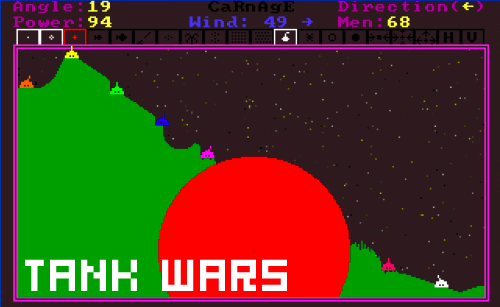
Tank Wars was the precursor to games such as Scorched Earth and Worms. Players took turns firing at each other with a variety of explosives, adjusting their shots for gravity and wind. It even featured crude destructible environments, a neat trick for the era.
Tank Wars was not the first game I ever played (that honour likely goes to Super Mario Bros. on my friend’s NES.) It was only one of the many DOS games I played on another friend’s old computer, alongside titles like Hugo’s House of Horrors and Jazz Jackrabbit. Why, then, does Tank Wars stand out so strongly in my memory?
I believe it’s because Tank Wars was the first game I ever played that had cooperative multiplayer. In other games you could pass around the controller, time-sharing the protagonist. However, Tank Wars gave me and my friend individual agency, then expected us to work together to overcome the computer. This simple change made a world of difference. We had to coordinate tactics. We were accountable to the “team” for our performance. We shared victories and losses.
Michael Abbot pronounced “co-op gaming” as his 2008 Game of the Year. I suppose it’s my pick for GOTY ’93.
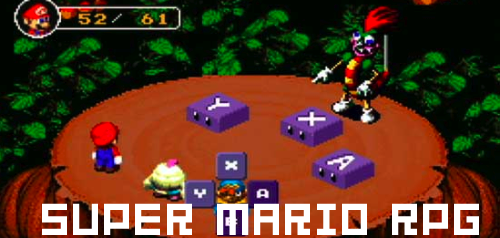
I’m sure this will make some of you feel quite old: Super Mario RPG: Legend of the Seven Stars, released for the SNES in 1996, was indeed the first RPG I ever played.
A bit of context for this: my parents reluctantly bought me a Super Nintendo for my birthday in the Spring of ’95. It was my very first video game system, and I cherished it. In its box was a card that urged me to subscribe to Nintendo Power magazine, so I dutifully handed over my allowance money later that Summer.
Each issue included a feature called “Epic Center” entirely devoted to RPGs, a genre concept that was entirely new to me. Stories that went beyond the instruction manual? Characters with personalities? Giant worlds to explore? These ideas blew my little mind, and I poured over each volume as if it were gospel. After the cover of issue 82, I knew exactly what I wanted for my birthday the following year.
In many ways, the action elements of Super Mario RPG made it an ideal starting point for a newcomer to the genre. The light platforming eased me into new concepts, such as turn-based combat and equipping items. Inventory management was particularly problematic; it took me ages to figure out that you could revive fallen party members with items. On the other hand, it taught me a variety of unusual habits that I carried with me to other games. I timed my attacks with the A button in Chrono Trigger and Pokémon, only realizing years later that most RPGs didn’t have such a system.
I’ve played through Super Mario RPG many times over the years, and it has held up very well with age. I still chuckle at the silly one-liners (“Who do you think you are? Bruce Lee?”) and quirky enemies (among them a wedding cake and a pastiche of the Power Rangers). It’s terrific to see the game’s legacy live on through the Paper Mario and Mario & Luigi series.
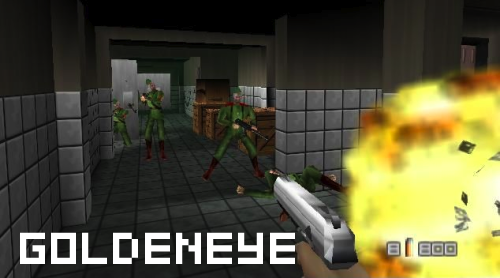
It must be difficult for people who grew up on PC games to understand the fuss over Goldeneye. The success of Doom inspired hundreds of imitators, planting the roots of first person shooters firmly in the PC market. At the time of Goldeneye‘s release, they were already enjoying online deathmatches in Quake. Why would anyone get excited over a movie tie-in with clunky controls and unremarkable graphics?
For those of us raised on Nintendo, Goldeneye was a completely new experience. Still becoming accustomed to the third dimension introduced by Super Mario 64, we were now allowed to navigate this space from a native angle. I didn’t just control a character on the screen, the person on the screen was me. In other words, Goldeneye was the first game that felt truly immersive.
Despite my earlier claims, Goldeneye was also innovative even in comparison to its PC brethren. For instance, it moved the focus of FPS games away from constant killing. Goldeneye rewarded stealth, and encouraged the player to silently and effectively achieve the mission objectives. This gave the game a strong sense of pacing, with highs and lows of intensity.
Unfortunately, as Mitch Krpata pointed out, the game has not aged well. The graphics are so crude that it’s often difficult to tell what’s going on, and the framerate is abysmal in multiplayer matches. Still, I credit Goldeneye for introducing me to a genre that I have come to love.
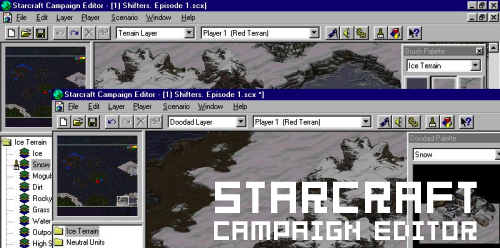
In the early 2000’s, my parents finally bought the family a computer. This was very exciting to me, as I finally had a chance to catch up on the last decade of PC games. Having enjoyed Warcraft 1 & 2 at a friend’s house, I knew exactly which game I wanted to play first.
Despite being a terrific RTS, I’d be hesitant to call Starcraft an important influence on my gaming tastes today. In fact, I suspect that less than half of my playing time was actually spent in-game; it was the Campaign Editor that really captured my imagination.
If you’ve never used Starcraft‘s editor, you might not know how robust it is. Beyond being able to shape the terrain, place resources and modify unit statistics, the Campaign Editor allows you to define triggers. A simplified form of event-based programming, they implement logic such as:
CONDITIONS:
-Player 1 kills at least 1 any unit.
ACTIONS:
-Display for current player: You have slain your first foe!
-Modify resources for Current player: Add 100 Ore.
Using triggers, I could coax Starcraft into becoming any kind of game I wanted. I experimented with making RPGs, racing games, and sci-fi survival horror. Furthermore, it was easy to import the custom maps to Battle.net and test them out with other enthusiasts on the “Use Map Settings” playlists.
In terms of personal “gaming education and influences”, Starcraft‘s Campaign Editor may be the most important. It planted the seeds of programming and game design in my young brain, seeds that have blossomed into an academic pursuit of Software Engineering and (hopefully) a future career in game development. I can only hope that LittleBigPlanet and Kodu will do the same for the little nerds growing up today.
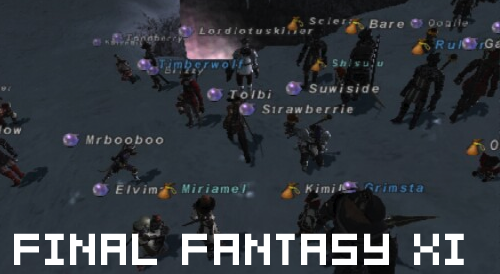
Unfortunately, not all of my “gaming education” has had a net positive effect on my life. I played Final Fantasy XI from April 2004 until January 2007, from the end of my last year of high school until halfway through my first year of university2. At the peak, summertime with no school and a part-time job, I suspect I played over 40 hours a week. It’s shocking and shameful for me to put that into numbers, but it’s the truth.
Some people talk about being “addicted” to an MMO. This may be an accurate metaphor for some people, but in my life I think it was much more subtle. I didn’t fail out of school, miss work or even stop learning karate. I suspect it wasn’t externally obvious that I played an MMO at all.
However, the part of my life that the game did consume was my leisure time. Instead of watching TV, reading a book, exploring a new hobby or playing a different game, I would play Final Fantasy XI. That’s exactly the problem with MMOs: no matter how much time you put into them, you can always benefit by playing more. As Jonathan Blow explained: “It doesn’t matter if you’re smart or how adept you are, it’s just how much time you sink in. You don’t need to do anything exceptional, you just need to run the treadmill like everyone else.”
There were some positive aspects to play Final Fantasy XI. I got to play and interact with people from all over the world, including one or two that I keep in contact with to this day. I learnt quite a bit about the psychology of MMO players, including the strange social hierarchies and superstitions that develop. Most importantly, participating and coordinating with ~60 other people to take down some of the strongest monsters in the game was a truly unique gameplay experience.
Playing Final Fantasy XI made me into the person I am today because I’ve learnt from my mistakes. It was my first and last MMORPG, an unforgettable experience that I hope never to revisit.

1 Check out Michel’s take on the series as well.
2 In Quebec, there are 2-3 years of CEGEP between high school and university.

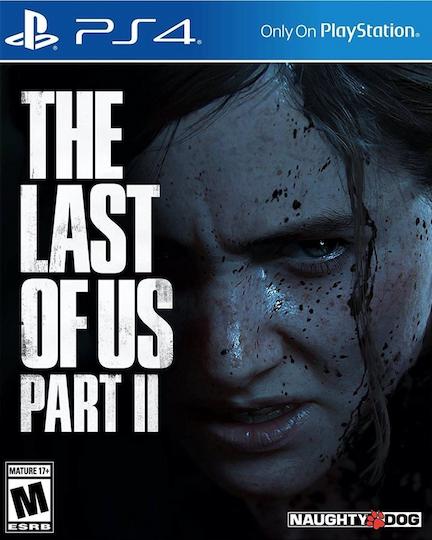
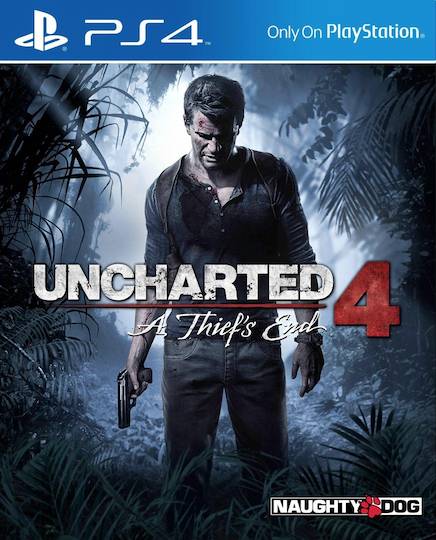
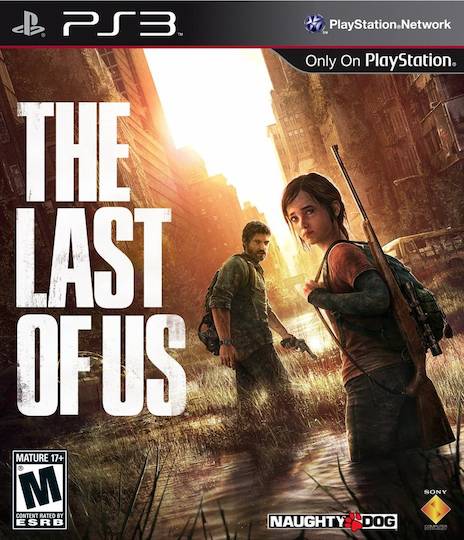
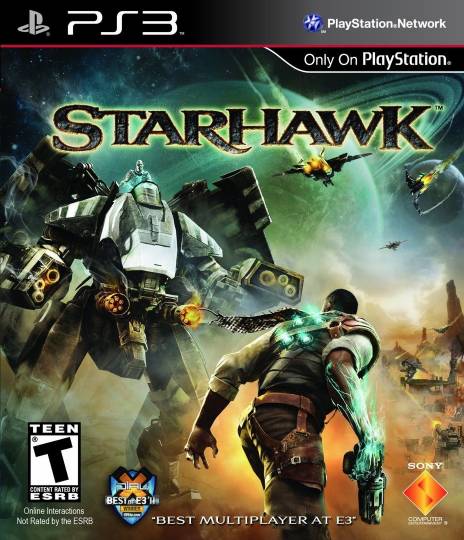
July 19th, 2009 at 12:59 pm
[…] over on Rock Paper Shotgun has been pretty interesting. Also, other game blogs I read have been posting their own takes, so I figured I would throw mine out there as well. The series asks folks to define what […]
July 20th, 2009 at 11:33 am
Great article – I’ve been following the “gaming made me” series on RPS too. We’ve got two “Gaming Made Me” articles coming out on Lungfishopolis.com on Tuesday and Wednesday this week.
July 20th, 2009 at 6:42 pm
@Greg: I look forward to reading them!
July 22nd, 2009 at 12:15 am
[…] by long-time friend of Scrawled in Wax, The Quixotic Engineer, who wrote a post called “Gaming Made Me“, itself inspired by a series at Rock, Paper, […]
July 31st, 2009 at 12:30 am
[…] Read the posts by Matthew Gallant, Michel McBride and Nels Anderson. Thanks for contributing, guys. 2.Good or bad, the games that […]
August 11th, 2009 at 6:54 am
Wow, my FFXI experience is scarily similar to yours, even down to the date ranges we played in.
You’ve explained exactly why it was a game to hate and love in equal measure, a game I have extremely fond memories for but no reason to repeat using any other MMO.
August 12th, 2009 at 9:09 am
@Michelle: What a funny coincidence, I suspect we both started playing around the PS2 launch.
September 14th, 2009 at 4:11 pm
[…] Me started with the crew over at RocksPaperShotgun and the various designers they asked, and then others in the middle circle has taken up the question of which video games have made them who they are. […]